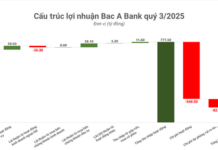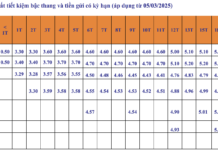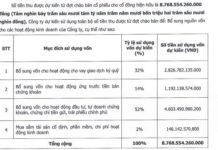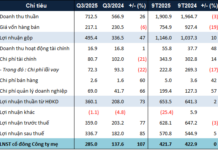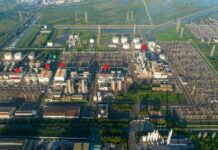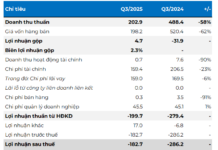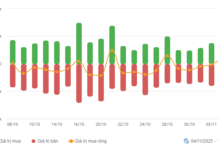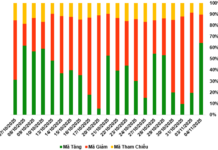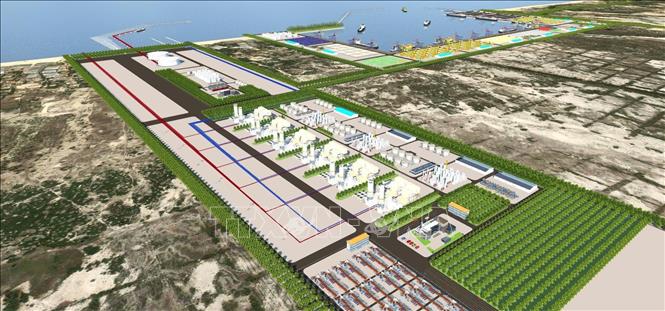
Perspective of the Hai Lang LNG Power Project with a capacity of 1,500 MW. Photo: Nguyen Ly-TTXVN
With a total capacity of LNG power sources planned for deployment under Power Plan VIII of 13 projects, with a capacity of approximately 22,500 MW, and considering a number of other potential locations, EVN has been negotiating Power Purchase Agreements (PPAs) with a number of LNG project investors. Through the negotiation process, EVN reported a number of obstacles that need to be addressed promptly in order to avoid affecting the progress of LNG power source investment implementation in Power Plan 8.
Price Negotiation Obstacle
In the aforementioned document, EVN stated that, to date, EVN has received documents to conduct PPA negotiations for the Nhon Trach 3 and Nhon Trach 4, Hiep Phuoc, Bac Lieu projects; of which only the PPA for the Nhon Trach 3 and Nhon Trach 4 projects with the investor, Vietnam Oil and Gas Power Corporation, has been negotiated in accordance with the PPA template stipulated in Circular No. 57/2020/TT-BCT of the Ministry of Industry and Trade, with the parties reaching basic agreement on the content related to the PPA, except for the project’s electricity price, which is still under negotiation.
The Hiep Phuoc power project has just begun negotiations in early 2024. For the remaining projects, the investors are currently in the process of preparing for investment (conducting project preparation studies, developing feasibility study reports, and completing related legal procedures); at the same time, the investors have also made a number of other proposals that differ from the PPA stipulated in Circular 57/2020/TT-BCT, so the PPA negotiations have not yet been able to be implemented.
According to EVN, the main obstacle in the PPA negotiation process is the requirement for the proportion of electricity through long-term power purchase contracts from July 1, 2012, when the official electricity market went into operation, with the revenue of power plants dependent on price developments in the electricity market, long-term power purchase contract prices, and electricity output through the electricity market mechanism and long-term power purchase contracts. Due to the unstable nature of electricity market prices, during PPA negotiations, LNG power project investors have consistently requested that EVN agree to a proportion of electricity through long-term power purchase contracts at a level of 72% – 90% throughout the entire contract term.
The aforementioned requests stem primarily from the requirements of the project lenders to ensure a stable cash flow for the entire loan repayment period of the investor and to minimize the risks arising during participation in the electricity market; the requirements of LNG fuel suppliers and transporters to ensure stability and optimization in production in terms of both fuel volume and price in the long term, as well as planning for international shipping, especially given that Vietnam is a new and small market for international LNG suppliers.
According to the current regulations on PPA negotiations, the proportion of electricity through long-term power purchase contracts is negotiated and agreed upon by the investors of the power plants and EVN; in the event that the two parties cannot reach an agreement, it will be carried out in accordance with the proportion announced annually by the Ministry of Industry and Trade according to the Electricity Market Regulations. However, agreeing to this condition would create the risk of increasing electricity prices and would be unfair to other types of power plants participating in the electricity market.
Specifically, since LNG is a fuel type with a high cost (the price of LNG imported to Vietnam’s ports is currently at the level of 12 – 14 USD/MMBtu), the electricity generation cost of LNG-fueled power plants will currently be at the level of 2,400-2,800 VND/kWh, which is much higher than the generation cost of other existing electricity sources in the system.
At the same time, according to Power Plan VIII, the total capacity of LNG power sources is expected to account for approximately 15% of the total national electricity source capacity by 2030. With high generation costs, significant fluctuations, and the aforementioned requirement for long-term output commitment, EVN’s input electricity purchase costs will be greatly affected, which will have a strong impact on the output retail electricity price when these LNG power sources come into operation.
“Agreeing to a high proportion of electricity through long-term power purchase contracts as proposed by the project investors would create financial risks for EVN in years when electricity demand is not high. At the same time, committing to the proportion of electricity through long-term power purchase contracts would be unfair to other types of sources currently participating in the electricity market (power plants currently participating in the electricity market do not have long-term commitments but rather operate annually in accordance with actual supply and demand). According to the development orientation of the electricity market, the proportion of electricity through long-term power purchase contracts will gradually decrease in line with the development roadmap of the electricity market in order to increase the level of competition through the spot market”, according to the EVN report.
According to EVN’s calculations on the latest supply-demand balance up to 2030, in the event that the LNG power sources in Power Plan VIII do not go into operation as scheduled, ensuring electricity supply for the period from 2028 – 2030 and potentially even years after 2030 could be affected. The annual electricity output deficit from 2028 onwards is from 800 – 1.2 billion kWh/year; in the event that peak load demand increases, it could lead to a significant deficit of up to 3 billion kWh/year from the period after 2030.
Early Agreement on Electricity Proportion Commitment
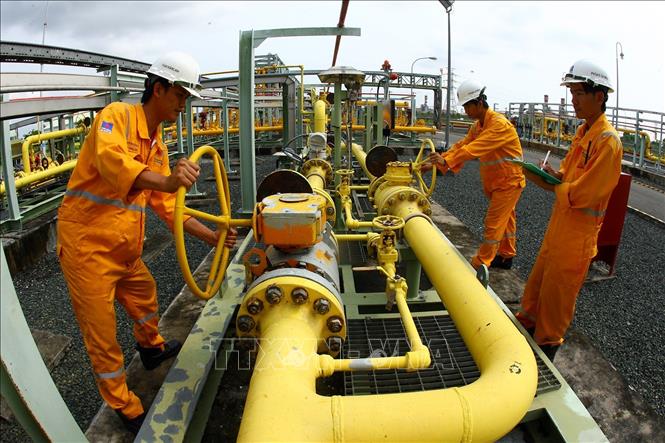
Operating the gas distribution system at Ca Mau Gas Company (under PV GAS). Documentary photo: Huy Hung/TTXVN
Based on the aforementioned analyses, in order to ensure the ability to arrange financing for LNG power projects and to ensure the ability to supply electricity for the period after 2028, EVN recognizes that it is necessary to commit to a certain proportion of electricity through long-term contracts in order to ensure a balance of interests between the state and investors during the repayment period of the LNG power project, and that this must be decided by a competent state agency for general application to the projects. The proportion proposed by EVN is 65%.
In addition to the request for the projects to commit to a proportion of electricity through long-term contracts, during the PPA negotiation process, EVN also frequently receives proposals from LNG power project investors, such as the proposal for the applicable law of the PPA to be the law of a third country (often English law), and for the settlement of disputes in foreign arbitration.
In this regard, based on the provisions of the Investment Law as well as the Law on Investment under the Public-Private Partnership Model; which require the applicable law to be Vietnamese law and for disputes to be settled in Vietnamese arbitration or Vietnamese courts, EVN is therefore unable to accept the aforementioned requests from project investors during the negotiation process.
With the proposal for a provision on the government guaranteeing the convertibility of foreign currency since the project’s revenue is in Vietnamese dong but the project enterprises have to convert it into foreign currency to pay off monthly loans and fuel costs. Other requests regarding the compensation mechanism for changes in the law, the termination and payment termination mechanism, and the rights of lenders to the project.
“The aforementioned requests also stem from the precedent of BOT contracts for previous power projects, are not provisions under the PPA, and fall outside the decision-making authority of the Vietnam Electricity Group”, the document states.
In order to promptly resolve the obstacles that exist in the PPA negotiation process for LNG power projects, contribute to ensuring the investment and operation progress of these projects in accordance with the objectives set out in Power Plan VIII, and ensure electricity supply security in the coming period, the Vietnam Electricity Group proposes that the Prime Minister consider and decide on an appropriate proportion of electricity through long-term contracts during the project’s repayment period in order to ensure the feasibility of attracting investment for LNG power projects, avoid a strong impact on retail prices, and ensure fair competition with other types of sources on the electricity market.
At the same time, approve the transfer of the import LNG price plus related costs (storage, re-gasification, transportation, etc.) to the contract electricity







